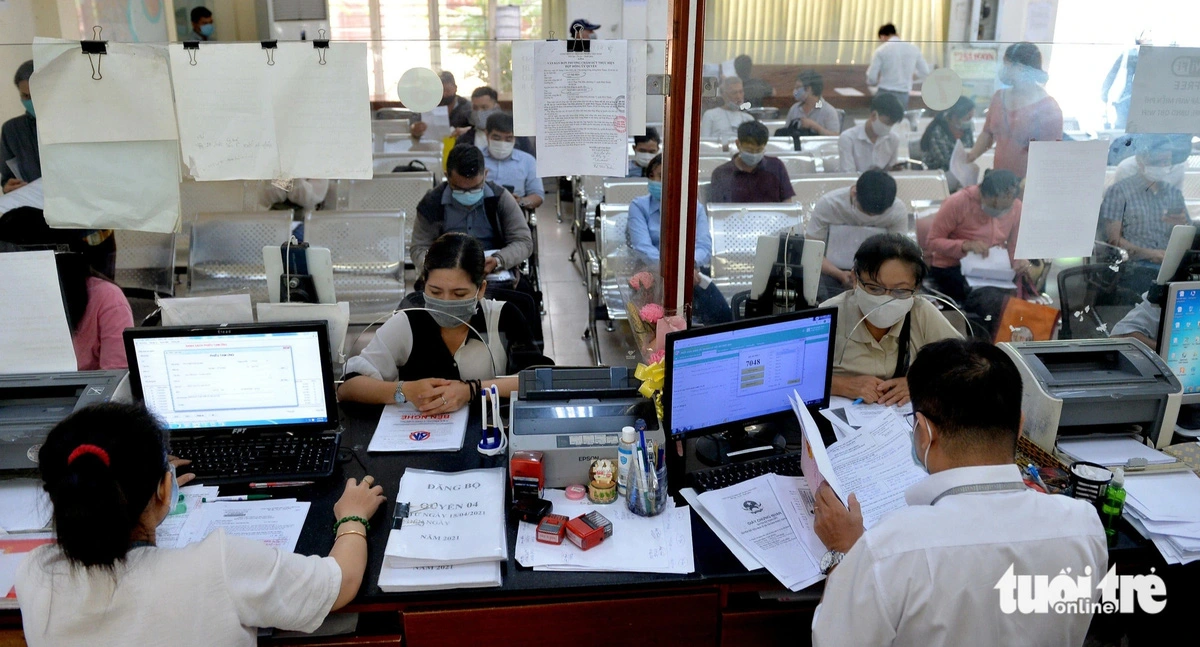An oversized state apparatus with overlapping functions has slowed Vietnam’s development and led to significant waste of the state budget. Streamlining operations and improving efficiency are seen as essential steps to drive the country's progress, according to local experts and residents.
Dr. Vo Van Sen, former rector of the University of Social Sciences and Humanities under the Vietnam National University - Ho Chi Minh City and an ex-member of the Central Council of Theoretical Studies, emphasized the need to scale down Party, state, and other management agencies while reorganizing the system to remove overlapping agencies.
This restructuring represents a significant overhaul, aiming to reduce the number of state-salaried officials by one-third.
To achieve this, officials must take on multiple responsibilities to streamline positions within the state management system.
Sen suggested selecting and training versatile officials with expertise across various fields to handle a wide range of tasks effectively.
He added that harnessing technology to simplify systems and processes would be an optimal solution.
Le Van Than from Tan Binh District in Ho Chi Minh City said that Vietnam should identify the purpose of such scaling down and solutions that clear up residents’ problems faster.
Eliminating inefficiencies will help streamline the state budget, support anti-corruption efforts, and make it easier for residents to monitor the operations of government agencies.
However, Than asserted that the unique characteristics of large cities like Ho Chi Minh City must be considered to ensure tasks are completed smoothly and effectively.
According to Dr. Le Minh Thong, former assistant to the chairman of the law-making National Assembly, said the act of scaling down a political system might be considered the true definition of a revolution. If the job is not done drastically, it will not succeed.
Thong stated that such slimming down would remove overlapping functions and responsibilities designated to Party and state administrations.
He believed that public servants would need to shift away from traditional management approaches and adopt a more citizen-focused mindset.
Thong proposed reforming the National Assembly’s operations and legislative activities to address legal bottlenecks and improve efficiency.
The state apparatus should also label ministries’ tasks to avoid overlap with others, according to the former official.
Nguyen Van Quynh, an official in Thach Thang Ward, Hai Chau District, Da Nang City, expressed his surprise at the estimated cost of operating the political system, which occupies 70 percent of the state budget.
This figure is too high, he said, leaving only 30 percent of the budget for investment and development.
It is reasonable to shrink the apparatus amid the current context as many large projects, such as a trans-Vietnam high-speed railway, are in dire need of capital.
Tran Dinh Tang, a resident of Go Vap District in Ho Chi Minh City, observed that many people retire later than regulated, and many poor-quality officials remain thanks to inefficient personnel reduction policies.
He suggested that poor-quality officials should be encouraged to resign or take on roles better suited to their skills, alongside improving the capabilities of officials in the political system.
Prof. Dr. Phung Huu Phu, former standing deputy head of the Commission for Information and Education, said Vietnam needs an overall model to reorganize agencies and units in a bid to resize the state apparatus.
It is necessary to clarify the tasks and functions of Party, state, and Fatherland Front bodies while considering officials as the nucleus.
Prime Minister Pham Minh Chinh has signed a decision to establish a steering committee to review the implementation of Resolution 18 on restructuring the political system for greater efficiency.
PM Chinh is the steering committee head and Permanent Deputy Prime Minister Nguyen Hoa Binh serves as his deputy.
The steering committee will review the implementation of Resolution 18 and propose solutions to reform and restructure the government, ministries, and ministerial-level agencies so that they will operate more effectively and meet the demand in this new era.
It is also responsible for reorganizing administrative agencies, reviewing the 20 years of the government’s organizational model, and proposing a structure for the national government in 2026-31.
Another task of the steering committee is to help the prime minister direct and work with ministries, ministerial-level agencies, other bodies under the government, as well as relevant units and organizations to complete the aforementioned tasks.
Like us on Facebook or follow us on Twitter to get the latest news about Vietnam!




















































